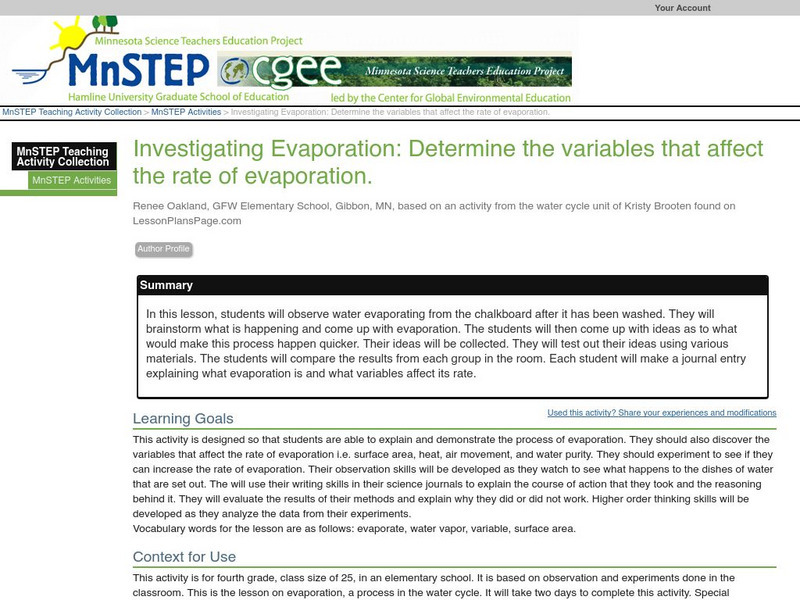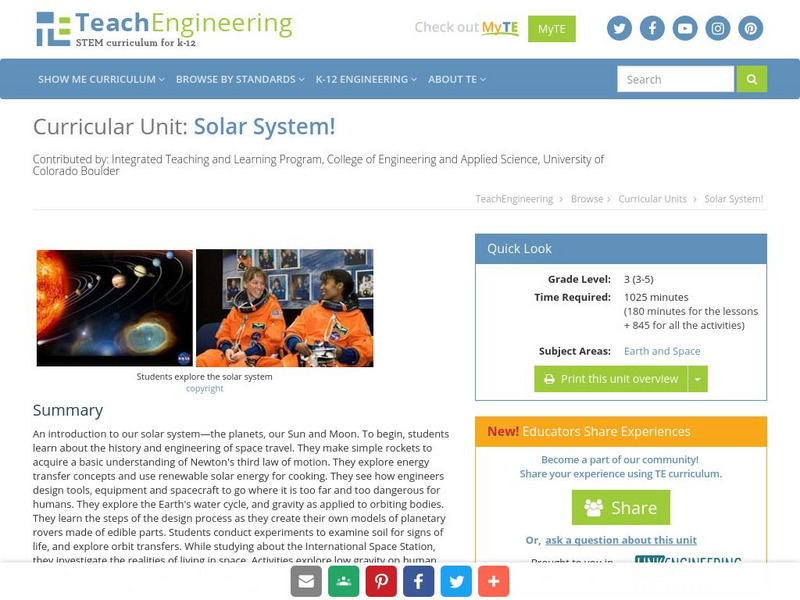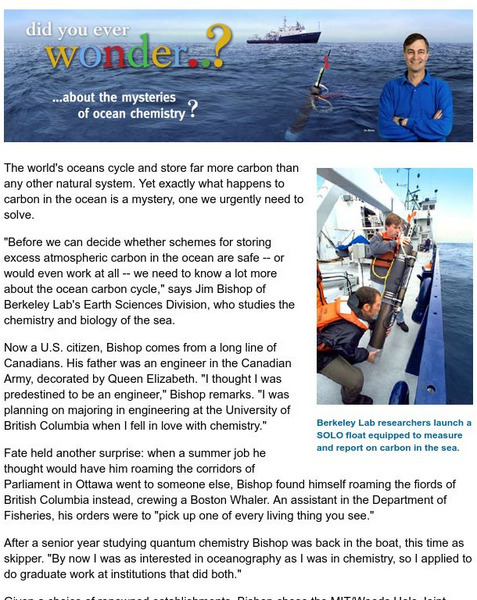US Geological Survey
U.s. Geological Survey: Search
The U.S. Geological Survey offers information for teachers and students interested on Earth Science research. Contains references to general information as well as current research and events.
Science Education Resource Center at Carleton College
Serc: Evaporation: Determine the Variables That Affect the Rate of Evaporation
In this lesson, students will be able to explain and demonstrate the process of evaporation while discovering the variables that affect the rate of evaporation.
TeachEngineering
Teach Engineering: Air Pollution
Students are introduced to the concept of air quality by investigating the composition, properties, atmospheric layers and everyday importance of air. They explore the sources and effects of visible and invisible air pollution. By...
TeachEngineering
Teach Engineering: Solar System!
An introduction to our solar system: the planets, our Sun and our Moon. Students begin by learning the history and engineering of space travel. They make simple rockets to acquire a basic understanding Newton's third law of motion. They...
Science Buddies
Science Buddies: Swimming in Acid: Understanding Ocean Acidification
The oceans are a precious natural resource, part of Earth's carbon cycle. But what happens if the oceans absorb too much carbon dioxide? Many scientists are concerned that the increased absorption of carbon dioxide is causing them to...
Open Ed
Open Ed Sci: 7.2 Chemical Reactions & Energy
In this 21-day unit, students are introduced to the anchoring phenomenon-a flameless heater in a Meal, Ready-to-Eat (MRE) that provides hot food to people by just adding water. They complete investigations to collect evidence to support...
NOAA
Noaa: Estuaries 101 Curriculum: Nutrients in an Estuary
An overload of nutrients, called eutrophication (Greek for "good-nutrition"), can be harmful to estuaries. This phenomenon is also referred to as "over-enrichment," or "nutrient pollution". Students will investigate the range of...
PBS
Pbs Teachers:biodome
Investigate biological systems that support plant life by constructing a self-sufficient, enclosed environment for growing plants.
TeachEngineering
Teach Engineering: Environment
Through 10 lessons and more than 20 hands-on activities, students are introduced to the concept of an environment and the many interactions within it. As they learn about natural and human-made environments, as well as renewable and...
Annenberg Foundation
Annenberg Learner: What Forces Affect Our Weather?
A great starting point for learning about the weather and for finding help starting your own investigation of what affects the weather. Site is organized into the following sections: "The Atmosphere," "The Water Cycle," "Powerful...
Lawrence Berkeley National Laboratory
Berkeley Lab: Did You Ever Wonder? About the Mysteries of Ocean Chemistry?
Students investigate ocean chemistry. The article discusses Jim Bishop, ocean cycle, the biology of the sea, and carbon in the sea. The resource consists of pictures, quotes, and links to additional resources.
Enchanted Learning
Enchanted Learning: Pond Life Animal Printouts
Filled with printable pages of both plant and animal pond life, Enchanted Learning features fact sheets with color pictures.













